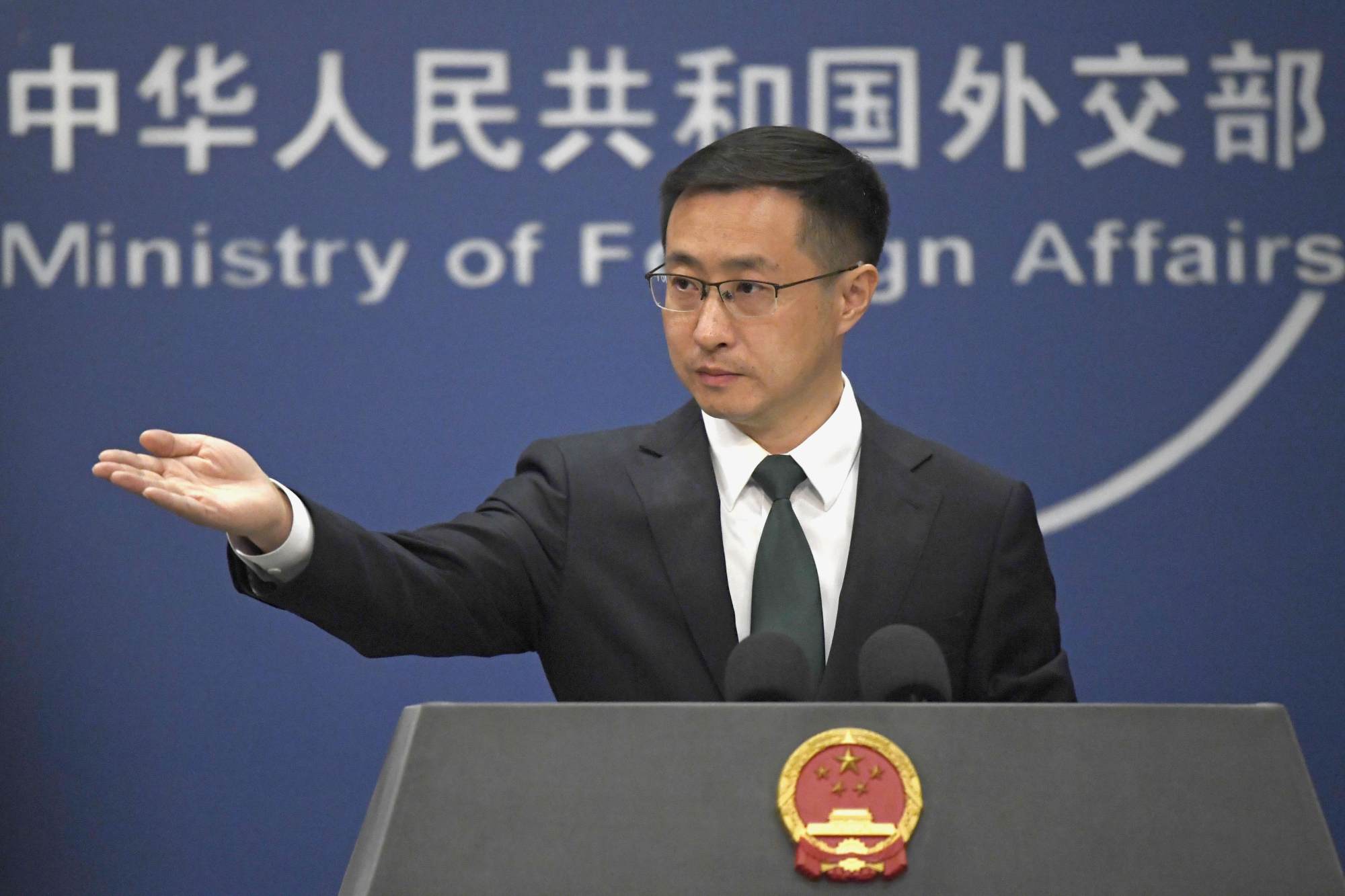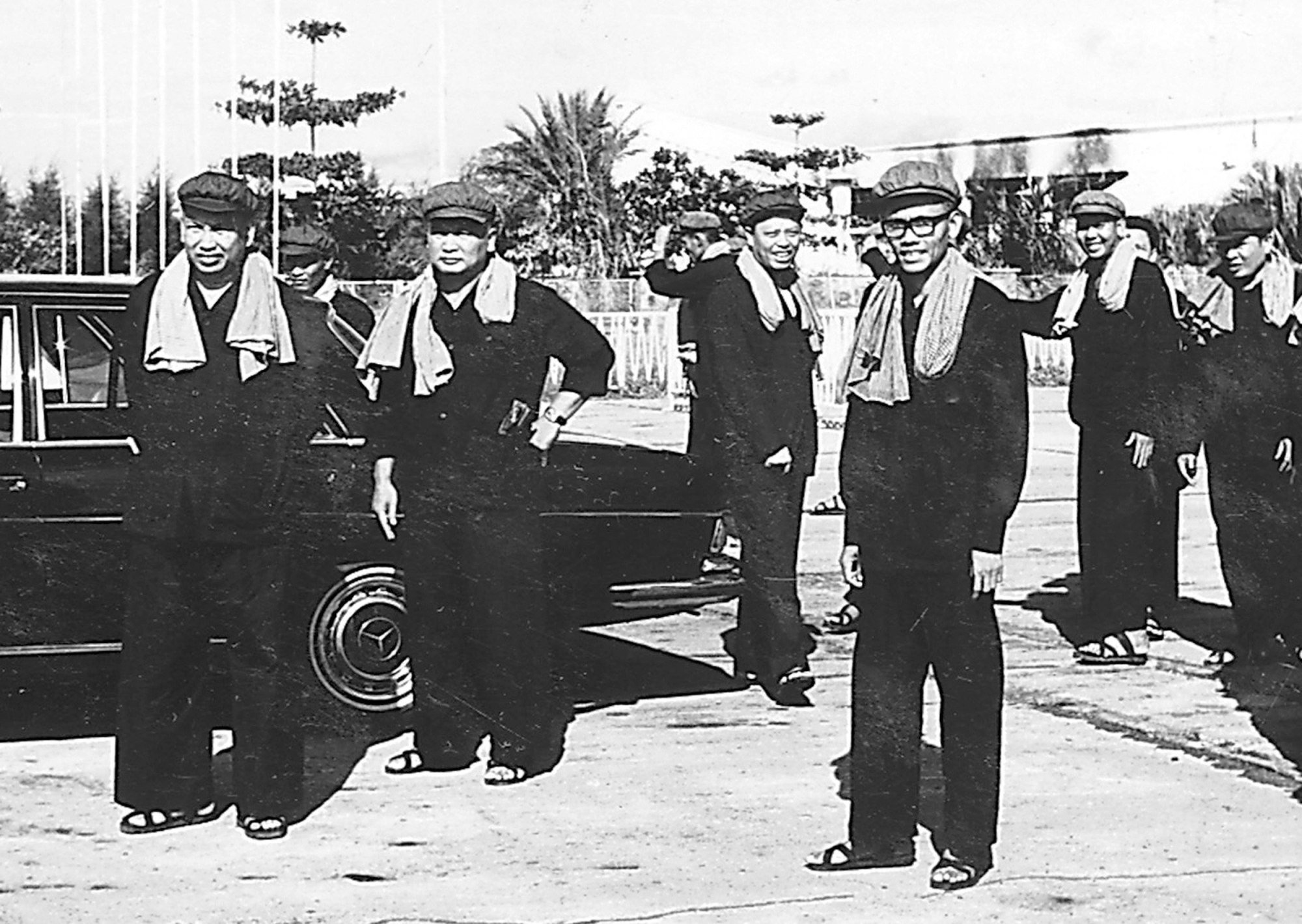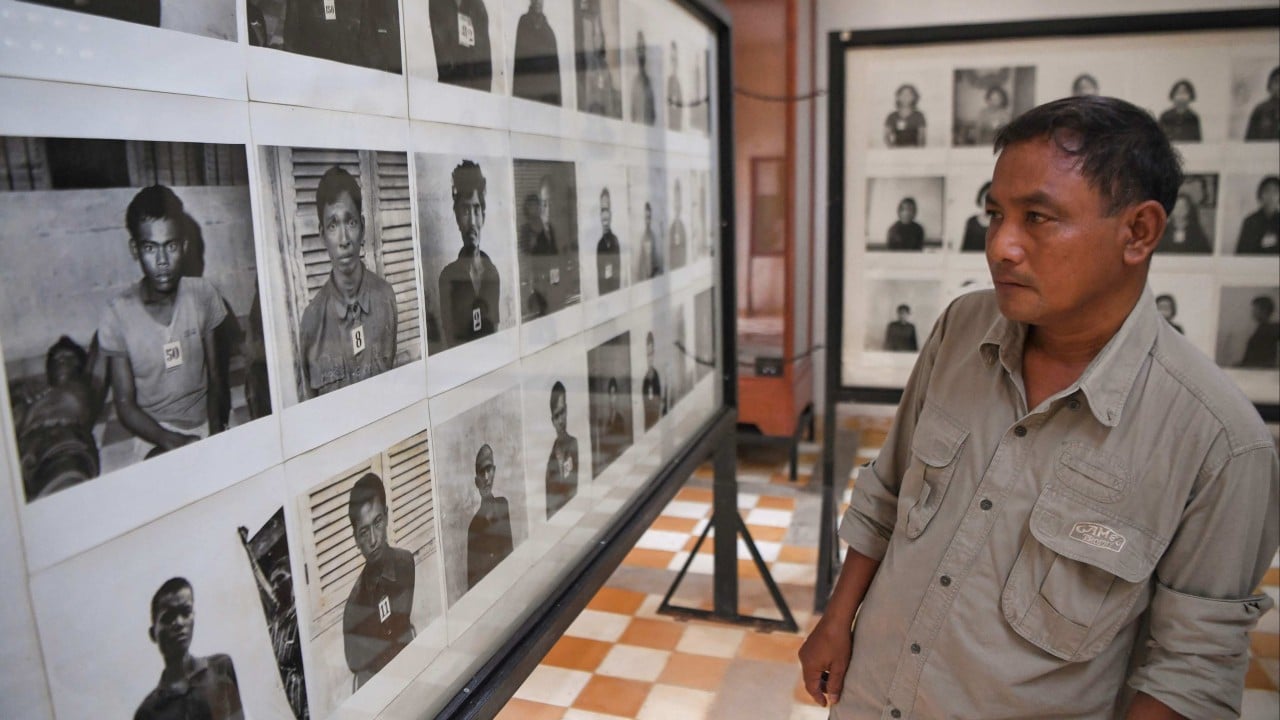China has frequently called on Japan to remember its militaristic history and the immeasurable pain and suffering it has inflicted on the region.
But Japan is not the only perpetrator of historical aggression in the region.
Last week, China reminded Japan again about history after Tokyo signed a defence pact with the Philippines, allowing troops from both countries to take part in joint exercises in each other’s country.
Chinese Foreign Ministry spokesman Lin Jian said any actions that undermined regional peace and stability would “arouse the vigilance and common opposition of the people of the region”.
Japan should “seriously reflect on its history of aggression and be cautious in its words and deeds in the field of military security”, he added.

The exhortation is a constant theme in Sino-Japanese relations.
In 2014, during China’s commemoration of Japan’s World War II surrender, Beijing urged Tokyo to learn from its past military aggression.
Last year, China told Japanese Prime Minister Fumio Kishida that major issues of principle related to “history” bore on the political foundation of China-Japan relations.
While Japan has undoubtedly inflicted incalculable devastation on the region, Beijing’s support for communist insurgencies in Southeast Asia was also a major source of aggression.
Even before the establishment of the People’s Republic of China in 1949, Beijing had supported insurgencies across Southeast Asia in countries such as Vietnam, Laos, Burma, Indonesia, Malaysia, Thailand, Singapore and Cambodia.
By cultivating ties with underground communist parties and supplying arms and material to these countries, Beijing hoped that armed struggle would lead to the overthrow of governments.
China’s insurgency support was a tool used to cement its international status among socialist countries, according to Stanislav Myšička writing in the International Journal of China Studies in 2015, as well as to weaken non-communist regimes, alongside the superpowers backing them.
A 1985 report from the Rand think tank said that over a period of almost 40 years, Southeast Asia governments had experienced so many insurgency incidents and conducted so many counter-insurgency campaigns that “an inventory of cases would reach encyclopedic proportions”.
Southeast Asian governments had to direct limited budgets and resources to tackle the insurgents who had little qualms about resorting to violence, including the destruction of life and property.
While estimates of the death toll of these movements throughout Southeast Asia were hard to come by, the Khmer Rouge, which received an estimated 90 per cent of foreign aid from China, was responsible for more than 2 million deaths in Cambodia.

Remembering history is well and good, but perhaps it should be a two-way street.
Doing so is likely to allow countries and individuals to learn from the past, understand the present, and hopefully not repeat past errors.
When urging Japan to remember history, China does not necessarily have its eyes on history or past aggression. Rather, it is to make a political statement on its dissatisfaction and even resentment of the present.
Amid months of naval confrontations with the Philippines, Beijing is furious that Japan has lent its weight to Manila to help counter its coastguard ships in disputed areas of the South China Sea.
By building closer defence ties, selling patrol vessels to Manila, and sending fighter jets and tanks to take part in joint exercises, Japan’s Foreign Minister Yoko Kamikawa said it was necessary to ensure “a free and open international order based on the rule of law”.
Remembering history is a convenient tool for China in expressing its resentment and exerting pressure on Japan.
Does supporting communist insurgents in Southeast Asia in this time and age sound far-fetched? Likewise, for a return to the sort of Japanese militarism, invasion and occupation found before World War II.
Perhaps history should be left to historians, academics, even activists and civic groups, because when the Chinese government harks back to history, uppermost on its mind is the present and not the past.


